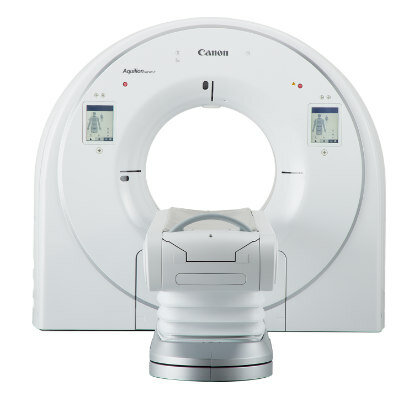New Deep-Learning Model Could Help Predict Lung Cancer Outcomes
By MedImaging International staff writers
Posted on 03 May 2019
A team of researchers used serial image scans of tumors from patients with non-small cell lung cancer (NSCLC) to develop a new deep-learning model that predicted treatment response and survival outcomes better than standard clinical parameters.Posted on 03 May 2019
Lung cancer is the most common cancer and the leading cause of cancer death worldwide, with NSCLC accounting for about 85% of all lung cancers. The standard assessment for diagnosis and response to therapy for patients relies heavily on the measurement of maximum tumor diameter, which is susceptible to variations in interpretation between observers and over time.
In order to see if they could extract more predictive insights as cancers evolve, the researchers built deep-learning models. They transferred learning from ImageNet, a neural network created by researchers at Princeton University and Stanford University that identifies a wide range of ordinary objects from the most relevant features, and trained their models using serial CT scans of 179 patients with stage 3 NSCLC who had been treated with chemoradiation. They included up to four images per patient obtained routinely before treatment and at one, three, and six months after treatment for a total of 581 images.
The investigators analyzed the model's ability to make significant cancer outcome predictions with two datasets: the training dataset of 581 images and an independent validation dataset of 178 images from 89 patients with non-small cell lung cancer who had been treated with chemoradiation and surgery. The researchers found that the models' performance improved with the addition of each follow-up scan. The area under the curve, a measure of the model's accuracy, for predicting two-year survival based on pretreatment scans alone was 0.58, which improved significantly to 0.74 after adding all available follow-up scans. Patients classed as having low risk for mortality by the model had a six-fold improved overall survival as compared with those classed as having high risk. In comparison to the clinical model that utilizes parameters of stage, gender, age, tumor grade, performance, smoking status, and clinical tumor size, the deep-learning model was more efficient in predicting distant metastasis, progression, and local regional recurrence.
"Our research demonstrates that deep-learning models integrating routine imaging scans obtained at multiple time points can improve predictions of survival and cancer-specific outcomes for lung cancer," said Hugo Aerts, PhD, director of the Computational and Bioinformatics Laboratory at the Dana-Farber Cancer Institute and Brigham and Women's Hospital, and an associate professor at Harvard University. "Radiology scans are captured routinely from lung cancer patients during follow-up examinations and are already digitized data forms, making them ideal for artificial intelligence applications. Deep-learning models that quantitatively track changes in lesions over time may help clinicians tailor treatment plans for individual patients and help stratify patients into different risk groups for clinical trials."














